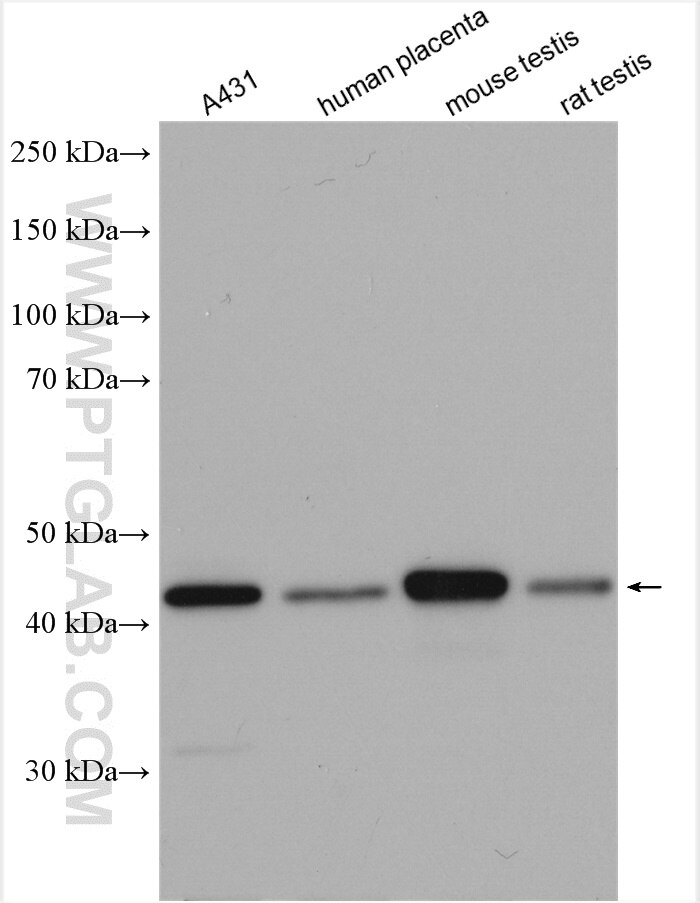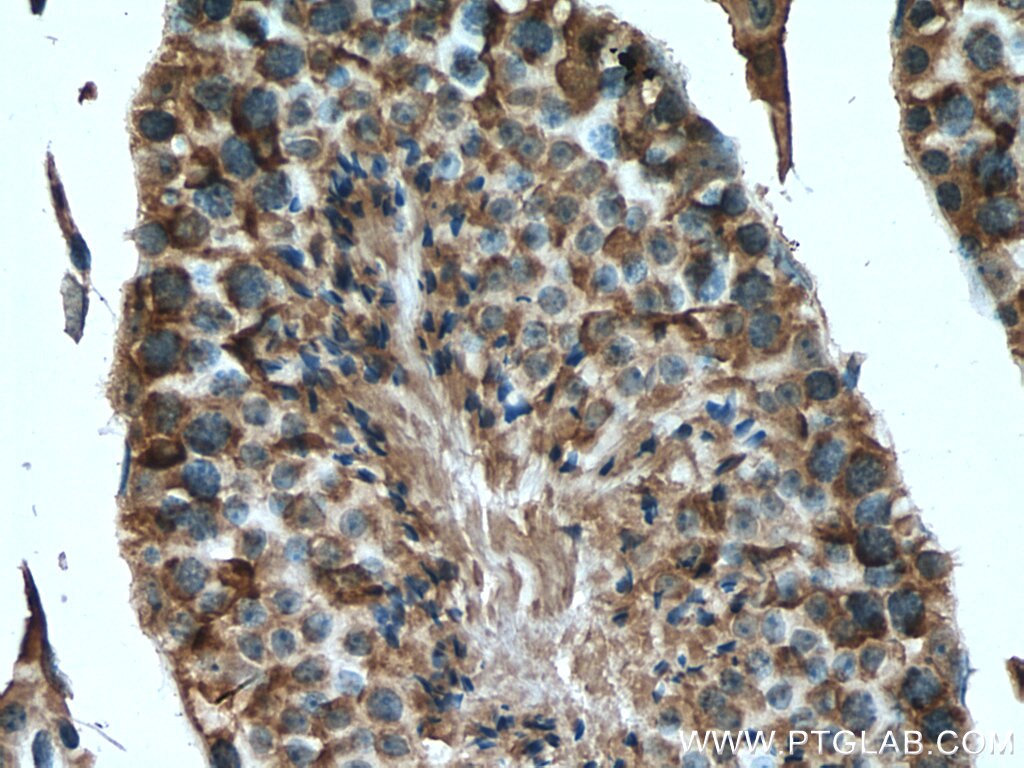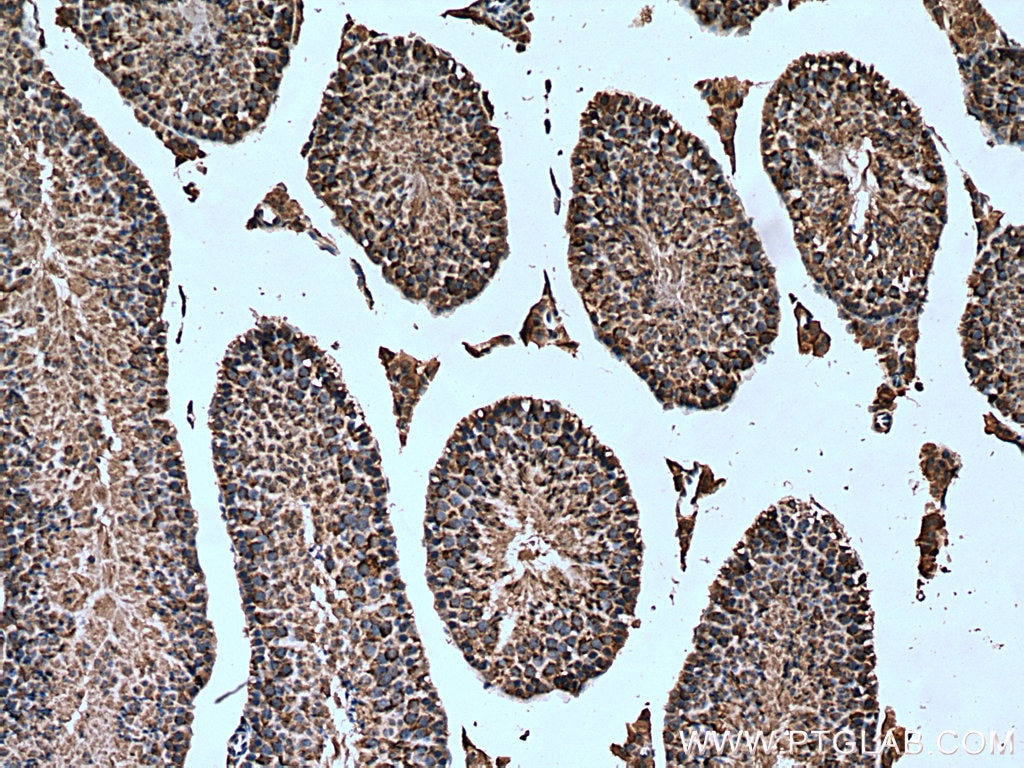Tested Applications
| Positive WB detected in | A431 cells, human placenta tissue, mouse testis tissue, rat testis tissue |
| Positive IHC detected in | mouse testis tissue Note: suggested antigen retrieval with TE buffer pH 9.0; (*) Alternatively, antigen retrieval may be performed with citrate buffer pH 6.0 |
Recommended dilution
| Application | Dilution |
|---|---|
| Western Blot (WB) | WB : 1:1000-1:6000 |
| Immunohistochemistry (IHC) | IHC : 1:50-1:500 |
| It is recommended that this reagent should be titrated in each testing system to obtain optimal results. | |
| Sample-dependent, Check data in validation data gallery. | |
Published Applications
| WB | See 1 publications below |
Product Information
17134-1-AP targets PDHA2 in WB, IHC, ELISA applications and shows reactivity with human, mouse, rat samples.
| Tested Reactivity | human, mouse, rat |
| Cited Reactivity | mouse |
| Host / Isotype | Rabbit / IgG |
| Class | Polyclonal |
| Type | Antibody |
| Immunogen | PDHA2 fusion protein Ag10882 Predict reactive species |
| Full Name | pyruvate dehydrogenase (lipoamide) alpha 2 |
| Calculated Molecular Weight | 388 aa, 43 kDa |
| Observed Molecular Weight | 40-43 kDa |
| GenBank Accession Number | BC030697 |
| Gene Symbol | PDHA2 |
| Gene ID (NCBI) | 5161 |
| RRID | AB_2878352 |
| Conjugate | Unconjugated |
| Form | Liquid |
| Purification Method | Antigen affinity purification |
| UNIPROT ID | P29803 |
| Storage Buffer | PBS with 0.02% sodium azide and 50% glycerol , pH 7.3 |
| Storage Conditions | Store at -20°C. Stable for one year after shipment. Aliquoting is unnecessary for -20oC storage. 20ul sizes contain 0.1% BSA. |
Protocols
| Product Specific Protocols | |
|---|---|
| WB protocol for PDHA2 antibody 17134-1-AP | Download protocol |
| IHC protocol for PDHA2 antibody 17134-1-AP | Download protocol |
| Standard Protocols | |
|---|---|
| Click here to view our Standard Protocols |
Publications
| Species | Application | Title |
|---|---|---|
Cell Death Dis TMEM232 is required for the formation of sperm flagellum and male fertility in mice |







